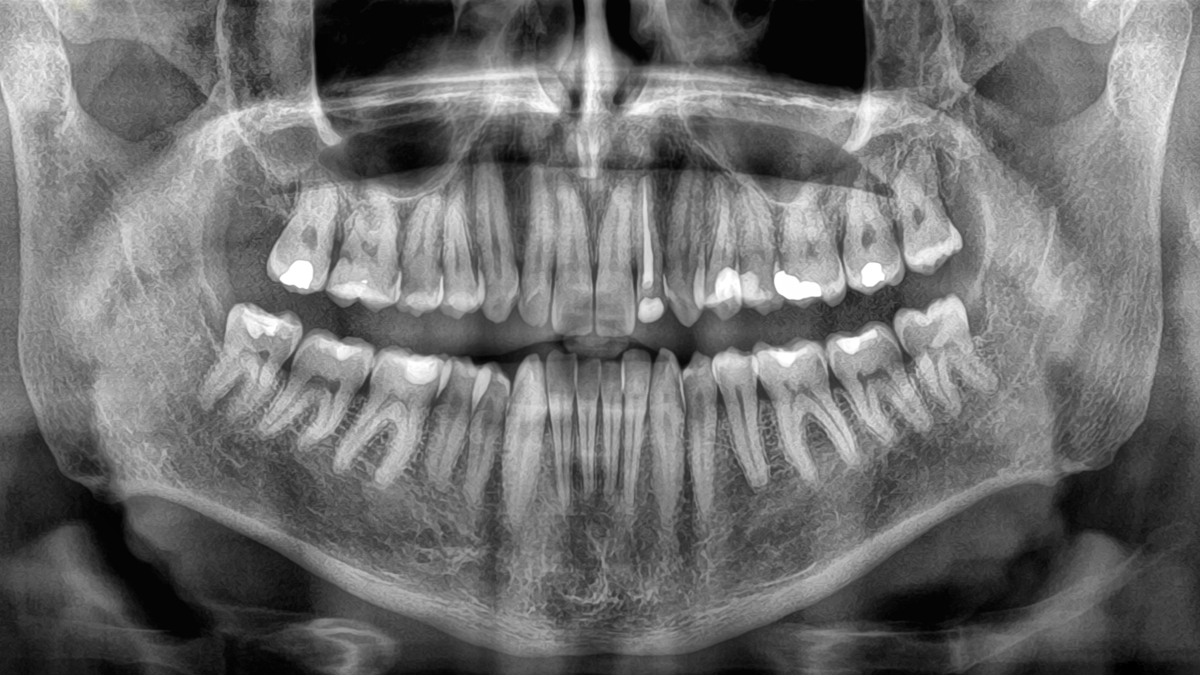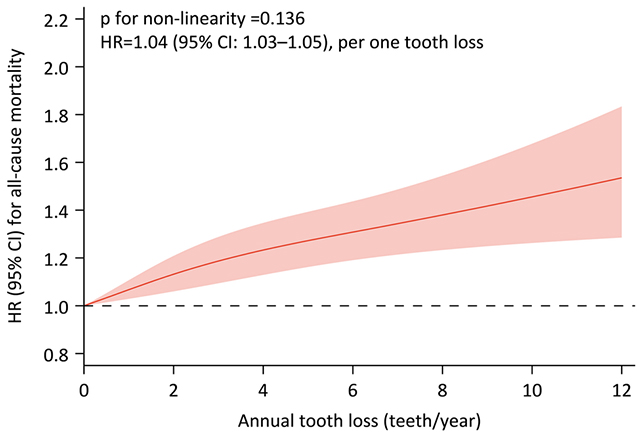
Losing Your Teeth Could Be a Deadly Warning, Study Finds : ScienceAlert
How fast we lose teeth in old age has been linked to a person’s risk of dying in a comprehensive new study, emphasizing the importance of good oral health, and suggesting tooth loss could be a key indicator of other serious health problems.
Tooth loss has been connected to mortality before – generally, fewer teeth means a greater chance of an earlier death – but until now, there hasn’t been any data on how losing teeth more quickly might affect this association.
To get that data, a team led by researchers from Sichuan University in China looked at tooth loss in 8,073 elderly people, tracking the rate at which they lost teeth against mortality, across an average of 3.5 years.
Related: Something in Your Hair Could Make The Ultimate Toothpaste
“Among older adults, the risk of all-cause mortality significantly increased with a more rapid progression of tooth loss, regardless of baseline tooth count,” write the researchers in their published paper.
This relationship was still present even after adjusting for several other factors that can have an influence on health and disease, including sex, age, education level, drinking habits, and levels of regular exercise.
The researchers aren’t suggesting that quickly losing your teeth can kill you. Rather, health issues leading to tooth loss may also be shortening your life. So tooth loss could be used as an indicator to assess someone’s overall health and mortality risk.
Good oral health has long been associated with better general health as well, with links to cognitive decline and heart disease previously identified.
Exactly why there is this correlation between tooth loss rates and mortality isn’t clear. The researchers point towards inflammation, diet, obesity, and psychological distress as some of the factors that could be influencing both tooth loss rates and disease.
When it comes to diet, for example, people with fewer teeth tend to have a less well-rounded diet because it’s hard to chew; the body then gets less of the nutrition it needs, further exacerbating health issues.
“Despite these explanations suggesting an association between tooth loss and other known mortality risk factors, the exact mechanisms remain unclear and warrant further investigation,” write the researchers.
The team behind the study is keen to promote good oral health. Regular visits to the dentist, twice-daily brushing, and quitting smoking all help keep teeth in decent shape – with prior research showing these habits affect how long elderly populations live.

Check-ups at the dentist also mean tooth numbers get counted, and fixes for missing teeth (such as dentures) can be applied. This could be a reliable way of keeping tabs on older people and their risk of death and disease, the study suggests.
Meanwhile, research into innovative ways to replace missing teeth continues to progress. In recent months, we’ve seen synthetic lab-grown teeth take another step towards becoming a reality, and clinical trials of a drug that grows back missing teeth.
“These findings emphasize the critical importance of monitoring tooth loss progression,” write the researchers.
“It is reasonable to suggest that healthcare professionals and the general public should be aware of the potential adverse prognosis associated with a rapid progression of tooth loss.”
The research has been published in BMC Geriatrics.
First Appeared on
Source link







